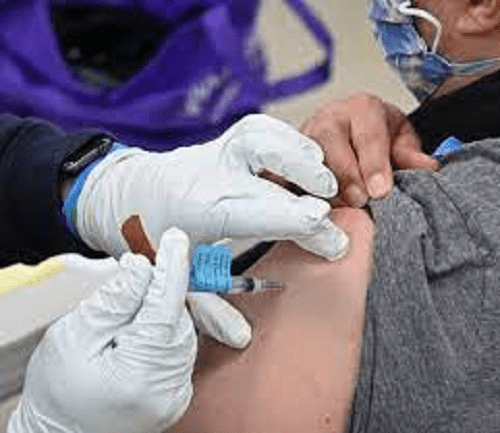
JUN 11, 2021 AT 5:00 AM- Baltimore Sun
A day after Maryland hospitals said they would start requiring COVID-19 vaccinations as a condition of employment, businesses, retail associations and consumer groups in the state said they would not rush to make the same decision.
The exception might be in nursing homes, where the coronavirus ravaged staff and residents in the early weeks and months of the pandemic, accounting for much of the state’s early death toll. At least one in Maryland already has imposed immunization requirements on workers.
Elsewhere, companies said they will encourage staffers to get vaccinated, rather than demand they do, though it’s not clear whether that will hold true if the COVID-19 vaccines win full federal approval from the U.S. Food and Drug Administration.
“A lot of employers are treading carefully on this one,” said Charles Bacharach, an employment lawyer at Gordon Feinblatt in Baltimore. “There is just so much misinformation that a lot of employees are just saying I’m not going to get it. The incentives may be a whole lot more effective.”
positivity rates fall to new lows, and employers in Maryland and elsewhere wrestle with safely reintroducing workers and consumers back to offices and other public spaces.
It also follows months of speculation about the nation’s ability to reach herd immunity, or the threshold that impedes the virus’ ability to infect more people. Data shows vaccinations significantly slowing the spread of the coronavirus and lessening the death toll as uptake increases. And public health experts say it is the single best pathway out of the pandemic.
The University of Maryland Medical System and Johns Hopkins Health System brought the issue to the fore Wednesday when they announced that they would require workers to be inoculated against COVID-19 by the end of the summer. Other Maryland hospitals said they would follow suit with such requirements, though some said they would wait until the vaccines receive FDA approval.
Employers can legally require workers to be vaccinated, Bacharach said. But he said that doesn’t mean every business, or even most, will.
He said that’s because the COVID-19 vaccine is different from the annual flu vaccine, long required by most hospitals, and childhood vaccinations, long required by schools.
First, many people just don’t want the vaccine, some based on misinformation or lack of information about safety or efficacy. Many don’t have a legal reason to decline the vaccine, such as a medical condition or religious belief.
But, Bacharach said, there is a labor shortage in many industries, including nursing homes and other health care facilities, as well as in retail. So maybe they will require new workers to get vaccinated but not push existing workers. For them, the employers may be more likely to offer incentives.
The Maryland Retailers Association said its members have been trying to incentivize employees to get their immunizations.
“Our organization across the board does not support one size fits all mandates and we believe each employer should be able to create a vaccine policy that fits them,” said Cailey Locklair, the group’s president.
The Maryland Chamber of Commerce, a statewide business advocacy association, said that while it did not have an official stance on businesses requiring vaccinations, it urged Marylanders to get vaccinated and “do their part to allow business to return to normal as soon as possible.”
This is the policy espoused by several major regional firms and companies, including Exelon and T. Rowe Price Group in Baltimore.
And AARP Maryland, the lobbying group that represents older adults, said vaccines, while encouraged, were not the only mechanisms available to keep nursing home and assisted living residents safe.
“AARP maintains that the decision to take a vaccine should be with individuals and their health care providers,” said Nancy P. Carr, AARP Maryland’s spokesperson. “AARP has been advocating for increased funding for personal protective equipment in all health care settings, more transparency on conditions inside facilities and better access for families with loved ones in facilities.”
Many nursing homes likely will require vaccines soon anyway, said Joe DeMattos, president and CEO of the Health Facilities Association of Maryland, which represents nursing facilities.
DeMattos said that early in the vaccination campaign many workers were resistant to getting shots because the vaccines were so new. Some specifically did not want the single-dose Johnson & Johnson vaccine either because it was slightly less effective than the two-dose vaccines or because of concerns about safety.
Now, he said, many facilities are waiting until they can work out the logistics of directly ordering the Pfizer/BioNTech or Moderna vaccines, which require storage in a deep freeze. That would make them regularly available on campus and not only when a contractor comes with doses.
In the meantime, DeMattos said, the facilities have been able to get vaccination rates among workers up to about 70%, about the same as hospitals.
“What we’ve found that has increased employee uptake and reduced hesitancy in recent weeks is peer-to-peer discussion, or meeting employees where they are emotionally,” he said. “Incentives may work also, but incentives alone are frankly very unproductive. It’s those casual discussions bringing people along.”
In announcing their vaccination requirements Wednesday, the state’s largest hospital systems said the move stems from the risks posed to staff members as well as patients who remain unvaccinated. Both will require all clinical and nonclinical personnel to get immunized by September.
Given medical concerns, high levels of hesitancy and other concerns raised by employees, Hopkins will not immediately terminate workers who refuse the shots, said Kevin Sowers, president of Johns Hopkins Health, in a Wednesday interview.
He said he hopes employees with concerns will speak up.
“Right now, we’re trying to work with employees and support them at a time they can deal with some vaccine questions,” Sowers said. “We want to be supportive.”
Other hospitals and hospital systems, such as MedStar Health, Lifebridge Health and Luminis Health, said they will require the vaccine eventually, but will not set dates until federal approval comes.
